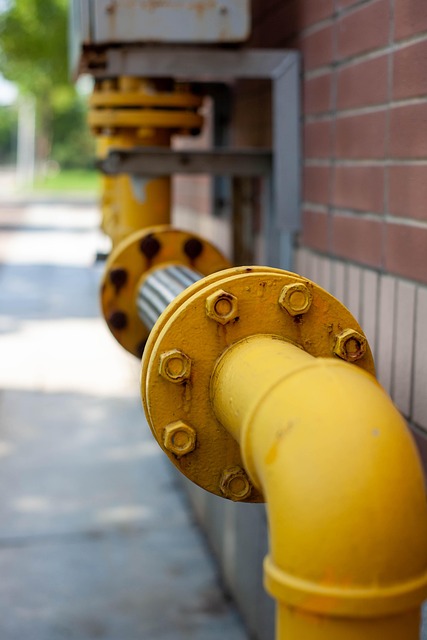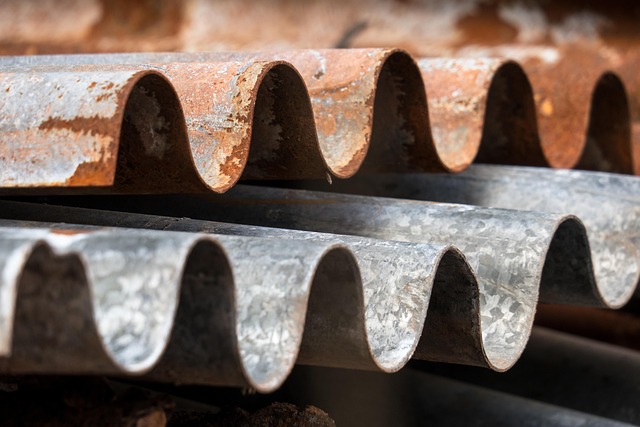Pipe corrosion, driven by moisture, chemicals, temperature extremes, and susceptible materials like iron or steel, can cause significant plumbing damage if unaddressed. Regular inspections are crucial for early detection, allowing for cost-effective repairs using wraps, inhibitors, or relining. Severe corrosion leading to rust, cracks, or leaks necessitates replacement. Understanding common causes empowers homeowners to make informed decisions between fixing and replacing, ensuring reliable plumbing performance. Calling a professional is recommended for severe cases, as plumbers offer specialized diagnosis, safe repairs, and long-term prevention strategies.
Pipe corrosion is a common problem that can lead to costly repairs and disruptions. Understanding the common causes of pipe corrosion, such as exposure to moisture, chemicals, and poor ventilation, is crucial for effective maintenance. This article guides you through identifying when to fix, replace, or call a professional for pipe corrosion repair. By learning the signs and understanding the ‘when-to’ strategies, you can prevent major issues and ensure your plumbing system remains efficient.
- Understanding Common Causes of Pipe Corrosion
- When to Fix and When to Replace Pipes
- Knowing When to Call a Professional for Pipe Repairs
Understanding Common Causes of Pipe Corrosion

Pipe corrosion is a prevalent issue that can impact various types of plumbing systems, leading to significant damage if left unchecked. Understanding the common causes behind pipe corrosion is essential for homeowners and professionals alike to make informed decisions regarding maintenance and repairs. One of the primary factors contributing to pipe corrosion is exposure to moisture. Leaks or inadequate sealing around joints and fittings can introduce water into the piping system, creating an ideal environment for corrosion to occur over time. Additionally, certain materials used in pipe manufacturing or installation may be more susceptible to corrosion. For instance, metal pipes, especially those made from iron or steel, are prone to oxidation when exposed to moisture and airborne contaminants.
Another common cause lies in the water quality itself. Hard water containing high levels of minerals can accelerate corrosion by promoting the formation of scale on pipe interiors. This build-up not only reduces water flow but also provides an insulator that worsens the corrosion process. Furthermore, changes in water pressure or temperature fluctuations can exert stress on pipes, causing them to weaken and become more susceptible to corrosion. Regular inspection and maintenance are crucial to identifying potential issues early on, allowing for timely repairs or replacements before corrosion reaches critical stages.
When to Fix and When to Replace Pipes

Pipe corrosion is a common issue that can lead to significant problems if left unchecked. Understanding when to fix and when to replace pipes is crucial in maintaining efficient plumbing systems. The first step involves identifying the common causes of pipe corrosion, such as exposure to moisture, chemicals, or extreme temperature changes. If corrosion is detected early, it’s often best to proceed with repairs rather than replacements. Simple fixes like applying pipe wrap, using corrosion-inhibiting products, or relining the pipes can effectively stop further damage and extend the lifespan of your plumbing.
However, as corrosion progresses, structural integrity may be compromised, indicating that replacement is necessary. Signs like significant rust buildup, visible cracks, or leaks suggest that the pipes are beyond repair. In such cases, it’s essential to consult a professional who can assess the extent of damage and recommend appropriate solutions. Regular maintenance checks can help in making informed decisions between fixing and replacing, ensuring your plumbing system remains reliable and efficient.
Knowing When to Call a Professional for Pipe Repairs

When it comes to pipe corrosion, identifying the right time to call a professional is crucial. While minor issues can sometimes be addressed with DIY methods, more severe cases often require expert intervention. Common causes of pipe corrosion include prolonged exposure to moisture, certain chemicals, high water pressure, and age. If you notice signs like rust buildup, leaks, or reduced water flow, it might be time to seek professional help.
Professional plumbers are equipped to handle complex corrosion issues that could compromise the structural integrity of pipes. They employ specialized tools and techniques for accurate diagnosis and safe repair. Moreover, they can provide guidance on long-term prevention strategies, ensuring your piping system remains in optimal condition.
Pipe corrosion is a common issue, but understanding its causes and knowing when to take action can prevent costly replacements. By identifying signs of damage and addressing them promptly—whether through repair or replacement—homeowners can maintain efficient plumbing systems. Remember, while minor issues might be manageable with DIY methods, complex cases often require professional expertise. When in doubt, consult a plumber to ensure long-lasting solutions and avoid further complications caused by Common Causes of Pipe Corrosion.
